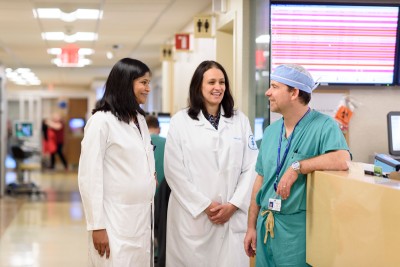
The Gastroenterology, Hepatology, and Nutrition Service at Memorial Sloan Kettering Cancer Center (MSK) provides consultations and follow-up care covering the full spectrum of gastrointestinal (GI) diseases.
The doctors and other clinical specialists in the service, have expertise in how GI diseases affect people with cancer and how cancer and its treatment affects the GI tract. We are dedicated to the prevention, early detection, and management of gastrointestinal cancers. By carefully identifying at risk individuals, we can appropriately screen them to reduce their risk of developing malignancy.
We use the latest endoscopic technologies to screen, diagnose, and manage both cancer and precancerous lesions of the GI tract. For some patients, these techniques may make surgery unnecessary, without affecting their outcome. These conditions include Barrett’s esophagus, early gastric cancer, and large colon polyps.
The Gastroenterology, Hepatology, and Nutrition Service faculty are all board-certified gastroenterologists. We work exclusively at MSK and are integral members and leaders of several Disease Management Teams. We collaborate closely with medical oncology, surgery, interventional radiology, and radiation oncology doctors. Together, we ensure that patients we care for receive the best treatment for their unique condition.
We have a strong commitment to medical education. The service offers three dedicated fellowship programs:
These programs place a special emphasis on people with cancer.
The service is actively involved in clinical research. Current studies are:
- developing endoscopic tools and techniques to address unmet needs
- evaluating endoscopic procedures
- studying high-risk groups of people to prevent the development of cancer and identify it at an early stage